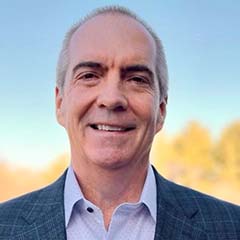
The events industry’s predisposition for burnout is standing in the way of more fruitful recruitment and retainment, said Mike Gamble, president and CEO of SearchWide Global. (Jacqueline Day/Unsplash)
It was the spring of 2021 when Mike Gamble realized that the industry’s labor problem might be bigger than he had feared. As the president and CEO of SearchWide Global — a firm specializing in executive recruitment for jobs in hotels and resorts, destination marketing, associations, venue management, trade shows and exhibitions, as well as other sectors of the industry — Gamble was fully aware that the pandemic would bring an unprecedented set of challenges when it came to employment, and that recovery would be slow. But it wasn’t until he read news articles and studies published by McKinsey, Goldman Sachs, and other research companies that he realized just how deep the issue really went. “This workforce crisis, I think,” he said, “really took everyone by surprise.”
According to a report released by the U.S.Travel Association in December 2021, “State of the American Workforce and its Impact on Travel,” the travel and tourism industry bore the brunt of pandemic job causalities — in 2020, direct travel jobs accounted for 35 percent of jobs lost and total travel-supported jobs accounted for 65 percent of all jobs lost. And as of the end of October 2021, one in six, or 11 million, job openings fell within leisure and hospitality.
The report lists myriad reasons for this hemorrhage of talent, from early retirement to migrations to other industries as well as self-employment opportunities. But it also highlights a deeper shift: “A widespread trend of individual introspection and a re-evaluation of long-term career goals combined with a new generation of workforce that has a different value system is having an impact.”
In his own recruiting work, Gamble has seen a change in perspective across the entire employee lifecycle, from the entry-level, hourly worker to the C-suite. He thinks that along with instability, the industry’s predisposition for burnout ranks as a major concern of prospective employees and is standing in the way of more fruitful recruitment and retainment. “It’s a war on talent at all levels, and it’s not going to resolve itself for quite a while,” Gamble said.

This workforce crisis I think really took everyone by surprise.”
‘A Real Paradigm Shift’
That’s because fixing burnout will, in turn, require a change in perspective of industry leaders. It’s not enough anymore to offer just good pay — employees expect and want a more thoughtful, flexible work culture, including opportunities for remote and/or hybrid work when possible. And it pays — literally — to foster an environment of wellbeing that allows employees to thrive. According to Gallup’s recent “State of the Global Workplace 2022 Report,” businesses with workers who report feeling supported and engaged see 23 percent more profits.
The move to hybrid work “is going to be a real paradigm shift for many leaders in our industry,” Gamble said. “The gap between our leadership expectations and our worker expectations is pretty severe, and we’ve got to shrink that a little bit.”
The same Gallup study identified one solution for fixing the many problems confronting the global workforce: better leaders. “Managers need to be better listeners, coaches, and collaborators,” wrote Gallup CEO John Clifton in the report, which surveyed adults in 160 countries throughout 2021 and 2022. “Great managers help colleagues learn and grow, recognize their colleagues for doing great work, and make them truly feel cared about. In environments like this, workers thrive.”
Still, there are other challenges choking the talent pipeline. It’s an employee market, and increased competition for their skillset has shortened the hiring lifecycle. Moving quickly, Gamble said, is key as candidates may have multiple offers on the table. And for non-remote roles that require a move, limited housing options due to dramatic fluctuations in the U.S. real estate market has thrown another hurdle in that race.
In addition to heading up his recruitment firm and his role as CEO of Tourism Diversity Matters, a recent initiative tasked with creating more diversity in industry leadership through apprenticeship programs, Gamble is involved in the U.S. Travel Association’s workforce initiatives as a volunteer board member. He also serves on the board of HSMAI Americas and the HSMAI Foundation. This labor crisis, he says, has been a focus of his work at both organizations.
At U.S. Travel, which formed a strategic partnership with Tourism Diversity Matters in late 2021, Gamble serves on a workforce committee formed with the intention of attracting more talent to the industry. He believes that a key step to achieving this goal is all segments of the industry joining forces to modernize the perception of the industry, because even though they might be competing for the same workers, “the way in which we talk to [potential talent] and recruit them as a greater industry is really, really important.”
Gamble said that following the lead of the more forward-thinking companies in the tech industry — an industry highly attractive to candidates — which emphasize the importance of diversity, positive work culture, and opportunities for advancement, could offer a potential blueprint. “We can learn from them, we have to be a little more aggressive with the way that we tell our story,” Gamble said. “The bottom line is that culture matters. The companies who understand culture and are embracing it and really living it are winning. Those who don’t are going to lose, and they’ll continue to lose.”
Jennifer N. Dienst is senior editor at Convene.
Hire Education — Read the Stories
Convene’s August CMP Series cover package examines the talent challenge the events industry is facing. Below are links to all the stories in the package.
- Is the Talent Challenge Choking the Business Events Industry’s Recovery?
- How One Association is Restaffing its Events Team
- It’s Time to ‘Think About Talent Differently’
- ‘Everybody Is Having a Difficult Time Attracting Talent’
- Expanding the Events Industry Talent Pipeline
- The New Events Staffing Landscape is ‘Unsustainable’

